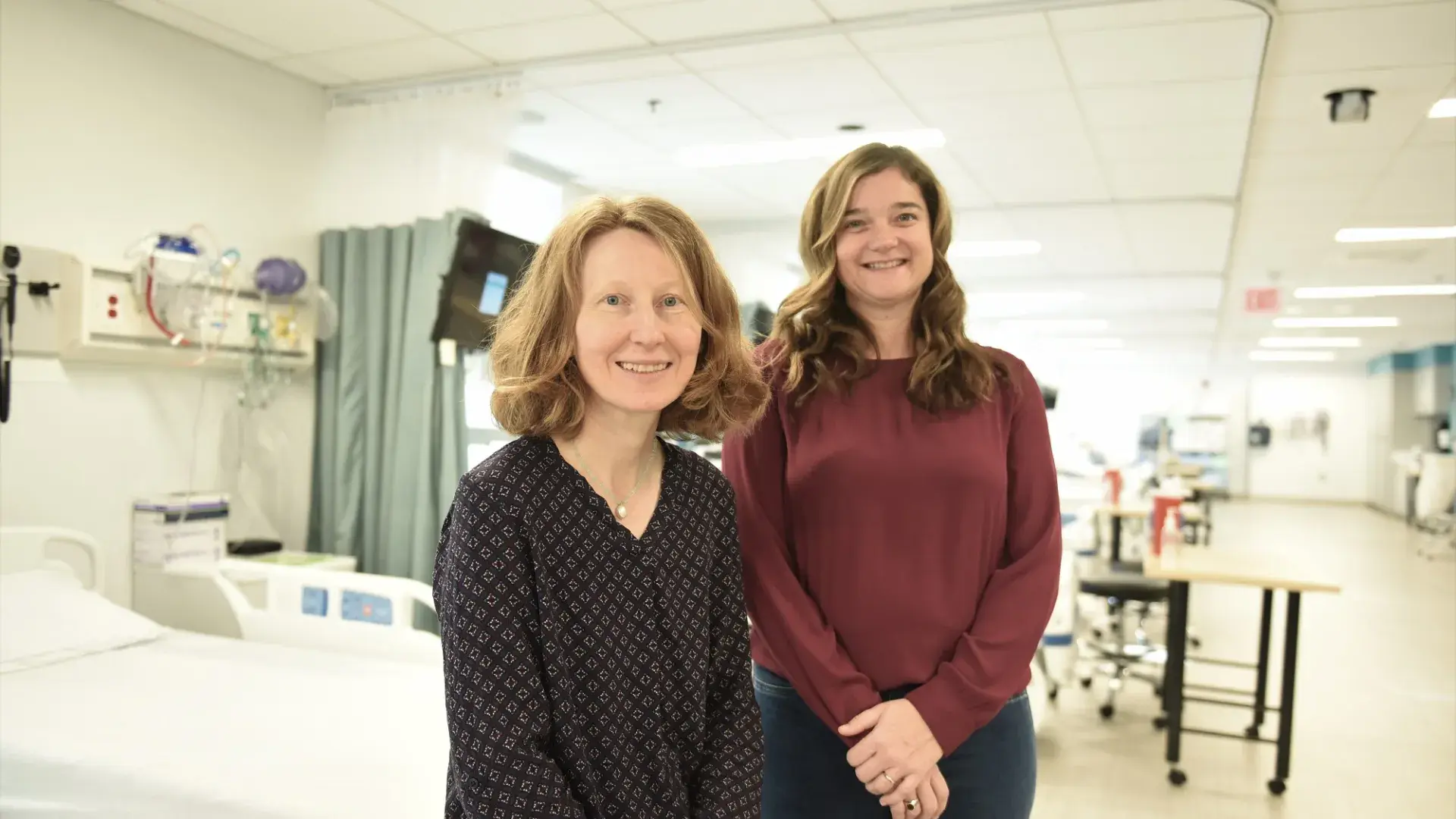
Rachael Salguero and Julika Wocial reimagined traditional faculty office hours to improve nursing students’ clinical judgment.
Picture this: A recently graduated nurse stands at the bedside of a patient whose blood pressure is dropping and whose heart rate is increasing rapidly. It’s clear something needs to be done immediately.
According to research published in the National Library of Medicine, clinical judgment – the ability of a nurse to apply textbook knowledge in real-life settings – has dramatically decreased over the last decade. The study shows that new nurses often lack the confidence to think critically even after passing NCLEX, the National Council Licensure Examination which allows them to practice as registered nurses.
“Newly graduated nurses have so much textbook information in their heads, but come time to apply it, it’s like they freeze and don’t know what to focus on,” says Julika Wocial, BSN ’19, an academic support counselor in the School of Nursing.
Wocial and instructor Rachael Salguero, BSN '09, who co-teach at the IHP, saw this happen just as Covid-19 began and learning went virtual.
“Part of the effect of the pandemic was the lack of in-person contact between nursing students and patients, which made their ability to judge certain clinical situations even worse,” noted Wocial.
Added Salguero, “Because you can’t learn everything from a textbook like when a patient’s status changes unexpectedly, or they do not want their medication.”
That’s when they had the breakthrough idea to create virtual clinical simulation office hours. In other words: role play. Using Zoom, Salguero pretended to be a patient and acted out likely scenarios a nurse could face. Students had to think quickly to decide the best plan of action.
“We were looking for something fun and innovative,” Salguero says. “We found a student’s average simulation quiz score improved from about 75% to 85%,” Salguero notes, “and they enjoyed it.”
Bachelor of Science in Nursing student Hannah Sarnie noted, “The simulation office hours were extremely beneficial in helping me develop critical thinking skills and figure out what types of questions to ask patients in real time. If I didn’t have that, I wouldn’t have felt as prepared.”
Though students have returned to in-person classes, faculty have continued offering these virtual office hours.
“At the end of the day, we are trying to prepare them and help them gain confidence,” Wocial said. “We see it working, and we don’t want to stop.”
